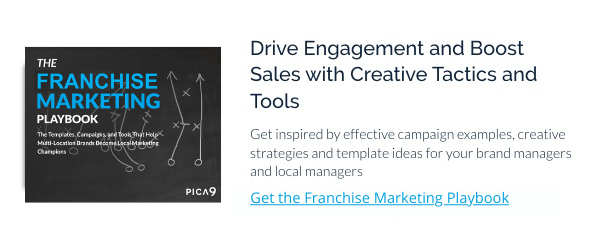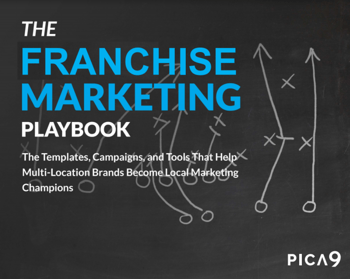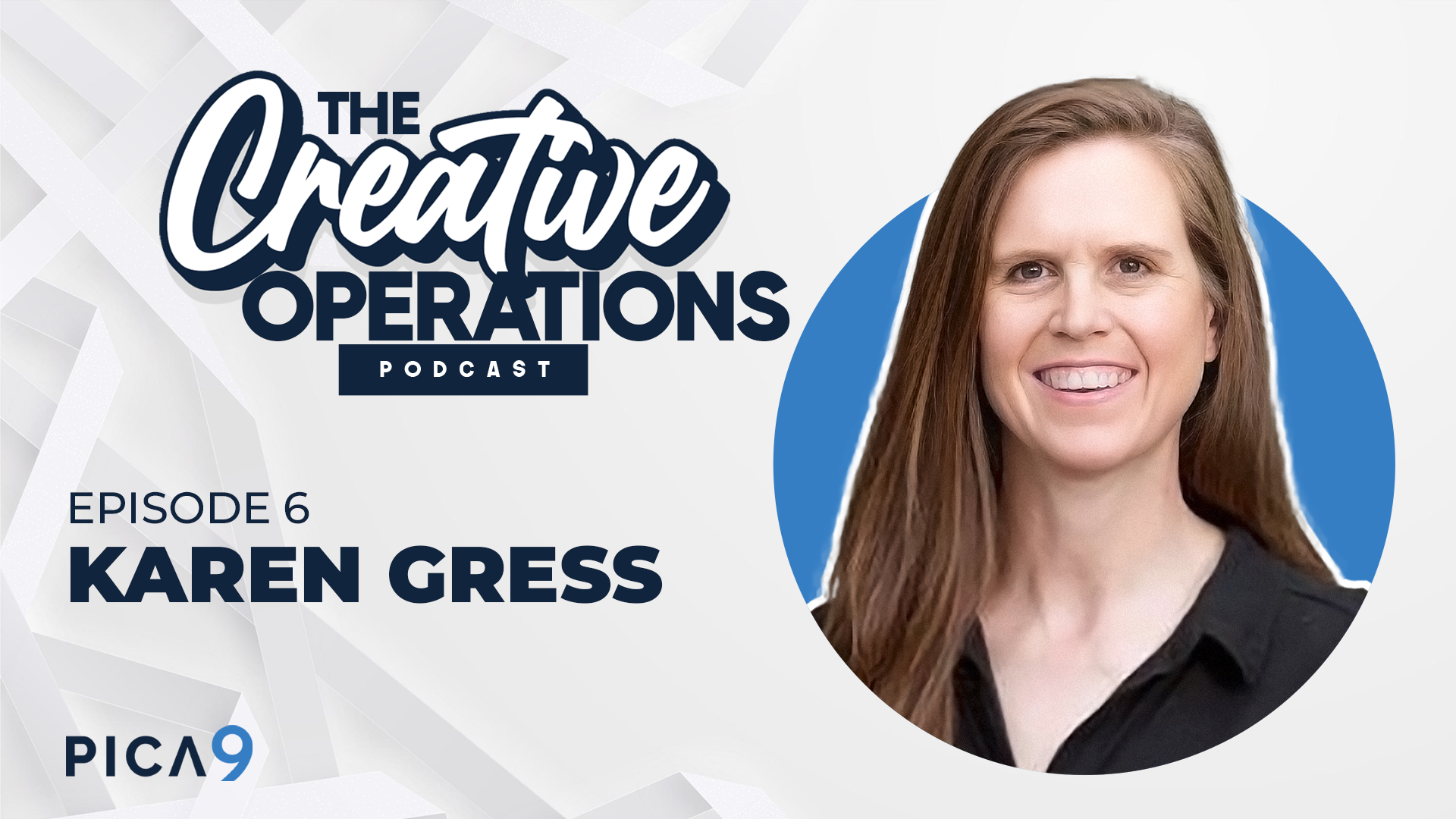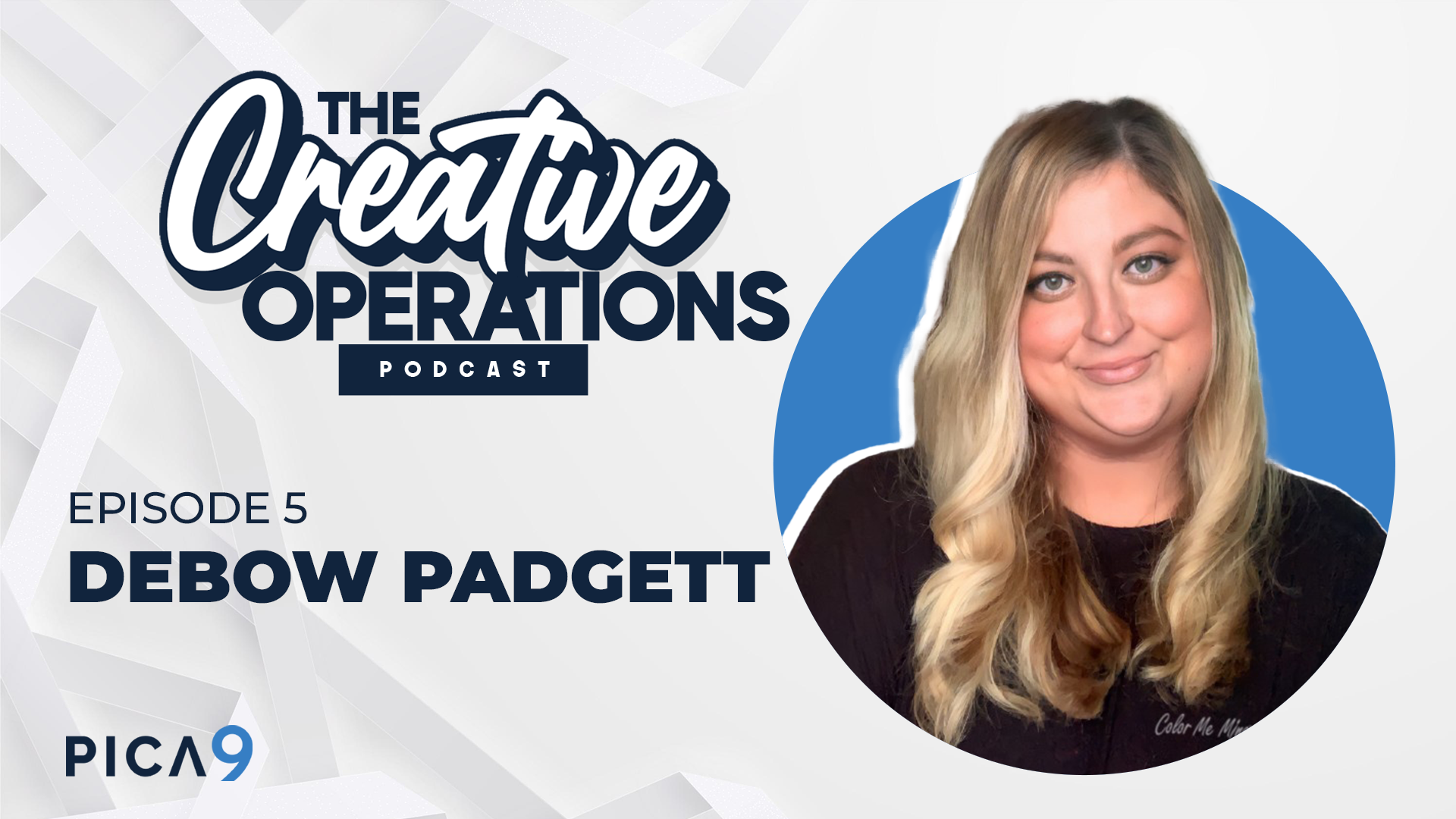Join Emily George, Senior Client Coordinator of Franchise Business Review, in "The Creative Operations Podcast", as she shares her experience in the ever-changing world of franchising.
KEVIN: Welcome everybody to today's edition of "The Creative Operations Podcast". I'm super excited about this because today we're going to be diving into the wonderful and sometimes wild world of franchising. And we couldn't have a better guest to do that for us thank Emily George, who's the senior client coordinator at Franchise Business Review.
So, Emily, let's talk just a little bit about your background, because I'm sure the listeners would love to hear this.
EMILY: Kevin, thanks so much for having me. I'm excited to be here. It's exciting to be so early in the podcast. Congratulations on your now fourth episode, I'm honored to be a guest. A little bit about me. I have quite a varied background. I've done everything from professional competition bartending, to working in tech startups. I worked for a tech app that was kind of a predecessor for Postmates and then worked for a digital agency that built boutique web experiences for brands on the Shopify+ platform. And then I have translated that all the way over to the franchising space. I worked for a supplier partner on the marketing side of franchising, and now for FBR, where I found my home, helping brands gather feedback from their franchisees, and then we ranked the best of the best based on that feedback.
KEVIN: That's awesome. That's a lot of different perspectives on questions that really affect franchising today. You know, the first one, and although we didn't mention this specifically, but the world of franchising is going through something really unique right now, having seen a tumultuous decline during the pandemic and now a similarly rapid return to kind of normal operations.
So I just wanted to start when you think about it creatively, and I love the background for you, which just speaks to creativity. When you think about creative operations in the franchising world, how has that V-shaped recovery over the past couple of years really affected folks. What pressures have you seen and how are franchisors and franchisees?
EMILY: That's a really interesting question and I think worth the conversation because while I don't have the quantifiable data to share with you, I'm confident that if we looked to the master of all information, Google, we could do some quick searching and find that businesses not within the franchise model had a much sharper "V" than brands in franchise systems.
What we saw and some of the things we did at the very beginning of the pandemic when brands started to shut down, we were connecting with brand partners and folks who weren't even working with us yet to see how we could help them gather feedback from their systems immediately—to start getting input into what franchisees needed most, what was happening in the system, how franchise owners could respond to that. And a lot of franchisors did go absolutely all hands on deck, just crisis mode, anything they could possibly do to figure out how to support franchisees in those moments when everything was uncertain and, you know, we all foolishly thought it was going to be a two week lock down and we'd be back to normal in no time.
So certainly, franchisors didn't have all the answers right away and they still experienced that, that "V" that you mentioned, but my guess is that it was, you know, a little more of a "U", than folks who didn't have the benefit of a franchisor to work with and help support them through.
KEVIN: It's a great point. We often think of the brands in the franchising world as being kind of launch pads and for sure they are for anybody who, as an entrepreneur, is thinking about getting into business. That launchpad is just invaluable—but the notion is that it's also a safety cushion to deal with uncertain times and to do so in a way that's disciplined, but also not quite so labor-intensive. Because particularly when you might be dealing with staff reductions and then returns, training, all of a sudden is a massive challenge for you. So you don't really have the time to put into creative operations that the franchise or franchisee relationship really
One of the things we see in our work with franchisees, we often find that they are jacks of all trades, having to do lots of stuff fast and do it well. It's super hard and the notion of having that safety cushion, you know, is a really valid point.
Let me turn for a second—because I was fascinated to hear about your tech background—and talk a little bit about tech, because another thing that we see in the franchising world and across all of the clients, from restaurants to healthcare, to financial services, we're seeing franchisees also being pushed to become more digitally literate—marketing digital literate, which is a tall order. So talk to us a little bit about your experience with what we've been calling the shift to digital over the past five years or whatever it might be that you think is approaching.
EMILY: It's interesting. I just saw a post from a really good friend of mine in the digital space. I'll find it so we might be able to link it in some show notes. But, it's Daryl from a company called Good People Digital and he was essentially saying that you can't deny a digital first existence anymore. Any brand that is trying to say that, that you just don't have to have a website.
I don't know where you're living or where people will find you, if you just don't think you have to have a website at all. And then further for brands who have at least acknowledged that they have to have a web presence who are trying to shortcut that web presence and find the cheapest, fastest, hacky way to have that web presence. You are trading the value of your brand in a dangerous way.
And I think we have to acknowledge first that you have to have a digital presence and then second that it is worth the appropriate investment in that digital presence to show up well, to show up where people are looking for you, and in a way that consumers can actually interact with you.
So my husband works for JP Morgan Chase and he actually does web work for JP Morgan. So he's working on accessibility for all of JP's web presence and between my background and his background, we are often looking at websites—and if we can't figure out how to use your web, we're not going to figure out how to use your website. We're just going to find a competitor who has a better web experience. And I think there are a lot of people who are doing a similar things and brands who embrace that and roll with it are going to rise with that tide.
KEVIN: It's another example of that safety cushion, right? The franchise brand. We often say, with our product CampaignDrive, for sure, we're deploying and distributing digital assets. But more important, in many ways, than the digital assets is the marketing intelligence. It comes along with it, knowing what to do and when— and knowing how to take care of details that, for most franchisees, wouldn't even be on the radar screen. You were mentioning, I think, ADA Accessibility: those kinds of details could take months, years, sometimes to get your arms around and, franchisors take care of it. The franchisees aren't thinking about it. In fact, our fastest growing, document type right now is social media posts and social media advertising, that's coming across in more and more sizes than ever before. So once again, that notion that I've got a launchpad and a safety cushion, you know, airbags in my car, I think is a great argument for how franchisees can get through this shift while they're doing everything else in terms of recovering from the pandemic.
Third question for you about people. There's been a lot of talk about the great resignation and I don't know if the grave resignation is something that everybody's feeling in every region of the country or in every industry equally, but my sense with the franchising world has been that it's a significant challenge. Have you seen the same thing and what have you been hearing from the front lines?
EMILY: Yes, it is a very real thing in franchising, as much as it is anywhere else and I think it's going to be interesting. It already is interesting in the conversations are already starting to shift. It is as much a great resignation as it is realization that it's a retention issue and brands have not built strategically to retain long-term. I've started to see some inklings in the conversation around you're offering hiring bonuses to attract new candidates, but what are you doing for the team you have and how are you, how are you equally focused on keeping the people you have continuing to train them, offering them pathways to grow, helping them to realize how great it is where they currently are? And if it's not as great as it could be, what are you doing to make it greater for them to stay with you?
In 2019, we actually launched an employee engagement survey. So in addition to the work we do gathering feedback from franchisees, we started gathering feedback from employees. And we are focused on, corporate teams of franchise brands, and then any employees of corporate-owned and operated franchise locations.
We didn't know what was coming. Like we don't have a crystal ball that we're sitting on. But we started gathering that information in 2019 and it has become super relevant and so more and more people are asking us to get some bench line information about what's happening in their teams. And that's part of the thing to know how your teams are doing, you have to be willing to ask the question. So brands are coming to us more and more asking us to ask the questions so that they can get good validated third-party feedback from their teams and then start building and improving already great cultures with that eye on long-term retention and just competitiveness in a really tight labor market.
KEVIN: It's interesting, on this podcast we try to focus a lot on creative operations and sometimes I wonder if we just have done ourselves a disservice by not thinking about retention as a creative challenge, you know, and not just the execution of the recruitment materials or the, or the branding materials, but how do we creatively engage that other part of a person's psyche?
You know, who's a team member and I think that that's something that we can really take away from this. That it's not just a marketing issue. You know, marketing really extends all the way into and all the way down to the very roots of the business.
EMILY: I totally agree. Having been in that startup world, you often wear many, many hats. And I wore an HR hat in some of those startup companies and my time in benefits creation and benefits administration, there is so much creativity to be had in what you can offer to people right now. And the idea of thinking about total compensation, not just like salary and bonus, but if you were to put a number against everything that you offer to a person by virtue of them being a member of your team, wherever, whether it's like flexibility in scheduling, remote work, travel, anything that you can offer as a benefit you should take credit for in a total compensation figure. And just a kind of a lifestyle measurement, we're seeing a lot of brands focusing more on that element and kind of from the startup tech world that was very common 10 years ago, and it's cool to see it become more and more common in franchising now.
KEVIN: Well, we don't have the foosball tables in franchise restaurants quite yet, but we're getting there.
EMILY: I think the tech startups will tell you to not invest in the foosball table. Like you don't need a foosball table or a ball pit, but there are other, like really meaningful benefits you can, you can offer to people that are really attracted to.
KEVIN: Great point. Well, let me turn to the question that's near and dear to our heart here at Pica9, which is brand integrity and brand compliance. So we've talked a lot about how franchisors really help franchisees, giving them a platform, giving them those airbags, that safety cushion around, uncertainty in the business, but the notion that the brand is really an asset that you're buying into as a franchisee, depends on you really using the brand properly. So, I just wanted to see from your perspective, in all the work that you do with franchising organizations, what stories you've seen, either in brand integrity really paying off, or maybe when we stray from it. Any thoughts there?
EMILY: I think it's a very salient point and something from my time on the marketing side of franchising, something that I used to do a lot of training and educating around because you're a hundred percent right. You're not just buying a business when you invest in a franchise, you are, you are making an investment with a collective of other people in that system and how you manage your investment can impact the investments of other people and vice versa and you wouldn't want a rogue franchisee, who's making terrible decisions with the brand changing brand colors, changing the look and feel of the brand, changing the tone of the brand, having an impact on your investment.
Why would you do that to somebody else? That integrity piece is really, really crucial. I think about emerging franchise brands, where sometimes you get some really unique, early adopters as some of those initial franchisees and they're early adopters for a reason they're willing to take that risk because they have a very entrepreneurial spirit and they're more likely to feel like they need to invent the system because it's a young system and they're going to try to push those boundaries and they may even feel the need to push those boundaries because the brand isn't quite established enough to have really great guardrails and partners and systems and all of those things in place.
So we do sometimes see it in the emerging side. And then there's usually a point in their growth where there's kind of a realignment and then everyone kind of gets the joke if you will and they start to move forward in a more cohesive direction. And then you'll see it sometimes, even in really well established brands that may get a little complacent.
And then you get a few folks in the mix, a few new franchisees who come into a system that does have really well established procedures and really established practices, but maybe they've gotten a little stagnant and they're not keeping pace with like a digital shift, for example. And then you may get a few franchisees who feel like they have to outpace the brand just to keep up.
So, I think it's, it can also be a bit of a chicken and an egg situation and hard to know which needs to happen first, if you need franchisees to kind of keep pushing the brand and where brands just need to really be on top of that evolution and be constantly driving that on behalf of their franchisees.
KEVIN: Just as a point to validate that we see across our approval loops, we've seen experienced administrators go right down to the individual franchisee when they can open up the door for some, but they need to keep the door a little bit more firmly shut or the guardrails more firmly in place, especially for new franchisees. We see folks who are loading up a grand opening campaigns, let's say, and toolkits for that, that are pretty locked down. But then deploying just to the folks who were really ready to deal with it, more flexible templates as time goes by. And I think that's just a validation of this notion you're mentioning, which is—listen to the franchisees, impose the rules because everybody needs those rules to be there, but be flexible because we're talking about a community here and the community needs to grow in order for everybody to feel like their investments are being properly, cared for.
EMILY: It's a great point.
KEVIN: You know, we should come back and revisit this, because the franchising world is changing rapidly and the notion of who's the best at it. And what makes you the best is something I'd like to keep revisiting with you.
And let me end by saying thank you. You know, we got done in less than 20 minutes. That's what we always try to do and a lot of value you just added, so thanks for taking the time.
EMILY: Thanks for having me. It's a pleasure to be here.




